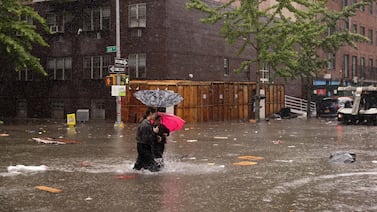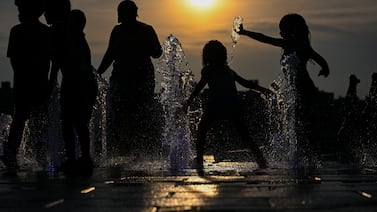SNAP-Ed, which funds nutrition programs across New York City, will expire Sept. 30. Without it, families may have less fresh produce — and advocates worry about increased child hunger.
Doula coverage across New York City increased 25% from 2022 to 2024, and underserved neighborhoods saw investments in care.
A new dashboard from the New York City Department of Health and Mental Hygiene offers a detailed view of vaccine coverage across the city.
An extreme heat warning was in effect for New York City on Tuesday. As summers get hotter, high temperatures are an increasingly dangerous public health threat.
The majority of tick-borne disease cases in New York City are imported from surrounding areas, like upstate New York, Long Island, and Connecticut.
Rising sea levels and intensifying storms threaten the city’s coastlines and low-lying neighborhoods.
In the United States, extreme heat is the primary cause of weather-related deaths, posing a significant threat to public health.
Here's a Q&A with Dr. Maureen Miller, a researcher for the study, which found that in one year, vaccine uptake rose from 44% to 76% in target communities.
An air quality alert is in effect for New York City from 11 a.m. to 11 p.m. Thursday. Young children, elderly people, and those with respiratory diseases are advised to avoid strenuous activities.
As climate change drives up temperatures and the risk of heat-related illnesses in New York, public health leaders and researchers are paying more attention to heat surveillance.











